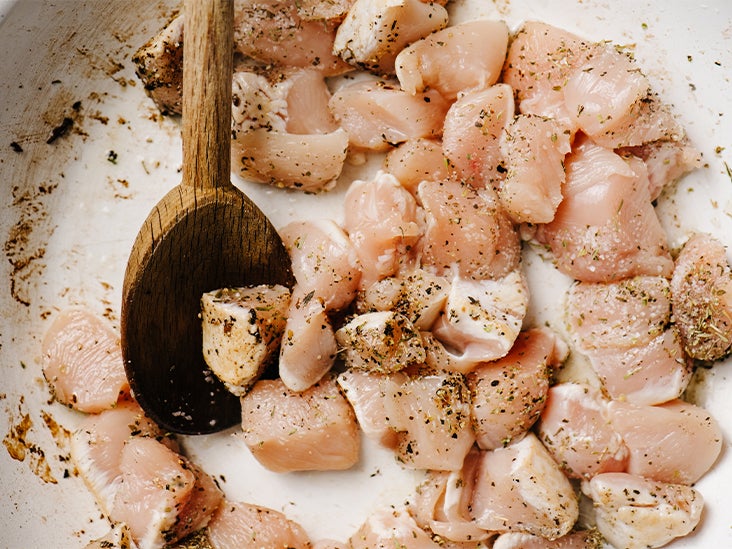- Can You Cook With Ammonia Powder
- What Can You Make With Ammonia
- Can You Make Soap With Ammonia
- Can You Make Disinfectant Wipes With Ammonia
- Can You Cook With Ammonia As A
(Obviously, if your seafood smells overpoweringly of ammonia, or is mushy, slimy or otherwise questionable, discard it.) America’s Test Kitchen recommends soaking the fish in milk for 20 minutes and patting it dry to remove any fishy odors.
Fill your small baby food jar with water and put it in a pan on the stove thats also filled with water. Put your vial filled with coke+water in the baby food jar. Heat the solution until its warm/hot but not so hot that it would hurt to put your finger in it. Add drop by drop ammonia to the vial, you will notice a milky white precipitate form. What happens if you eat fish that smells like ammonia? Uncooked spoiled seafood can have sour, rancid, fishy, or ammonia odors. These odors become stronger after cooking. If you smell sour, rancid, or fishy odors in raw or cooked seafood, do not eat it. If you smell either a fleeting or persistent ammonia odor in cooked seafood, do not eat it. If you have never used it, you can find it in the supermarket near the other types of yeast. They are normal sachets containing a white powder that is added to the dough in the traditional way but remember that during cooking it will give off a strong smell of ammonia. In German baking, it's known as hirschhornsalz or hartshorn, and it is also called baker's ammonia. It is not used for cakes since the gaseous ammonia given off during baking cannot escape the thicker, higher batters and would make the baked goods smell bad.
What happens if you eat fish that smells like ammonia?
Uncooked spoiled seafood can have sour, rancid, fishy, or ammonia odors. These odors become stronger after cooking. If you smell sour, rancid, or fishy odors in raw or cooked seafood, do not eat it. If you smell either a fleeting or persistent ammonia odor in cooked seafood, do not eat it.

What causes ammonia taste in fish?
The ammonia-like smell is because the fish is not fresh. It is a product of decomposition. Don’t eat it if it smells like that. It might not make you sick, but then again it might.
How do you clean fish with vinegar?
Soak fish in 1/4 cup vinegar, lemon juice or wine and water before cooking it for a sweet tender taste. Remove the fishy smell from your hands by washing with vinegar and water or salt and water. When baking whole fish, wrap it in well-oiled cheesecloth.
How do you reduce the smell of fish when cooking?

Frying can cause a massive odor problem, but other techniques, like cooking fish in foil or paper, can put a lid on the problem before it starts. Cleaning experts recommend neutralizing the odor before cooking by soaking fish in milk or a solution of lemon and water.
How do you get rid of ammonia smell in fish?
(Obviously, if your seafood smells overpoweringly of ammonia, or is mushy, slimy or otherwise questionable, discard it.) America’s Test Kitchen recommends soaking the fish in milk for 20 minutes and patting it dry to remove any fishy odors.
Can you smell ammonia in fish tank?

Once you know what ammonia smells like, you’ll recognise it for the rest of your life. … If you smell ammonia coming from your fish tank something is seriously wrong. The tank may have been stocked too quickly, the tank could be overstocked, overfed, under filtered or a fish may have died in there.
What does it mean when lobster smells like ammonia?
“The ammonia odor indicates spoilage.” … The ammonia odor may be more difficult or even impossible to detect when the lobster tails or shrimp are frozen. Cooking will bring out the odor, indicating that the product is spoiled.
Why does my shrimp taste like ammonia?
Cooking will bring out the odor, indicating that the product is spoiled. … Do not confuse the smell of ammonia with the taste of iodine, which has nothing to do with spoilage. Shrimp feeding on certain organisms can produce a distinctive iodine flavor.
Why would scallops taste like ammonia?
Why do scallops smell and taste like ammonia? Scallops that smell or taste like ammonia are spoiled and should NOT be eaten. It doesn’t matter if the ammonia smell is from raw or cooked scallops, do not eat them if they have even a slight ammonia smell.
What vinegar is good on fish?
Malt vinegar is an obligatory condiment for fish and chips.
Why do you put lemon juice on fish?
Can You Cook With Ammonia Powder
Lemon is often used in cooking to “Brighten” flavors, and works well to counter many of the briny flavors present in oceanic cuisine. … This is why lemon and fish can go so well together. The salt and the acid balance each other, while doing a little flavor dance on the palate.
What Can You Make With Ammonia
Can you cook fish with vinegar?
When people think about cooking, they mostly think about heat. But there’s one sort of dish that is “cooked” without any heat. … Soak fish or shellfish in vinegar or lemon or lime juice, and the meat turns opaque and the texture firms up, almost as if it has been cooked.
What is the strongest smelling fish?
Can You Make Soap With Ammonia
A fermentation process of at least six months gives the fish its characteristic strong smell and somewhat acidic taste. A newly opened can of surströmming has one of the most putrid food smells in the world, even stronger than similarly fermented fish dishes such as the Korean hongeohoe or Japanese kusaya.
How can I bake fish without smelling the house?
Delish suggests cooking your fish while it is wrapped in parchment paper or foil, because the smell isn’t as likely to permeate through something solid. You might also want to poach your fish fillets (the smell gets trapped in the water), and if you have an outdoor grill, that would be an option, too.

Can You Make Disinfectant Wipes With Ammonia
How do I make my fish not smell fishy?
Can You Cook With Ammonia As A
Wash it with cold water: If the fish has only recently started to smell, a quick rinse in cold water—not hot water—will remove most of the bacteria and TMA. Rinse, pat dry with a paper towel, and cook. Soak it in milk: Casein, a protein found in milk, will bind to the TMA and leave the fish smelling fresh as ever.